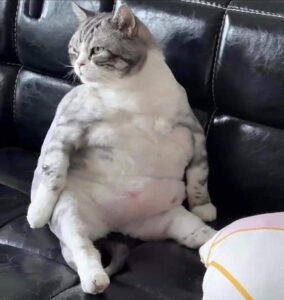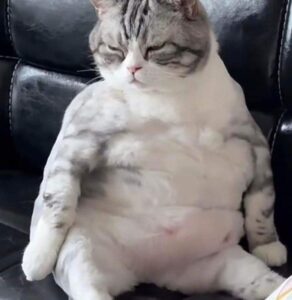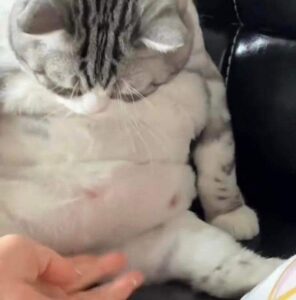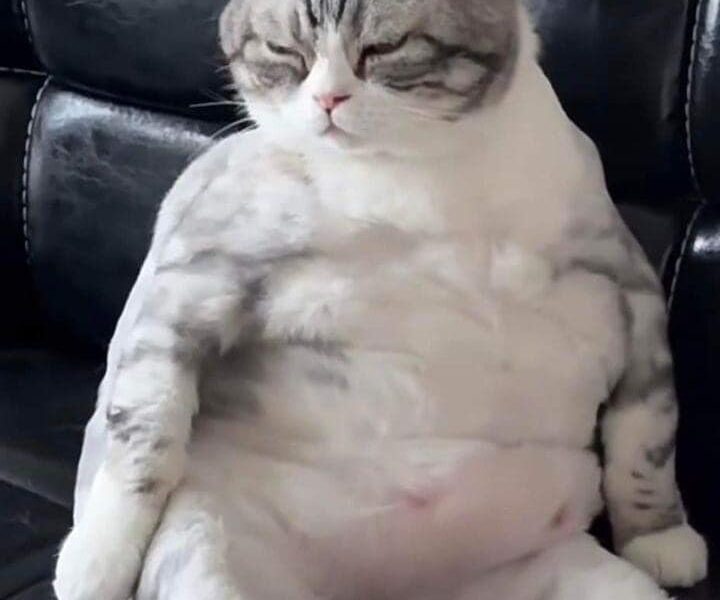The Charm of Fat Cats: Why We Love Our Chubby Feline Friends
Cats have long been one of the most popular pets around the world. Their independence, playfulness, and mysterious nature make them both fascinating and lovable. Among the diverse shapes and sizes that cats come in, there’s one particular type that has captured the hearts of many: the fat cat. These chubby felines, with their round faces and rotund bodies, have become internet sensations, and their plump appearance only seems to enhance their appeal. But why exactly do we love fat cats so much? And what should we know about keeping our overweight feline friends healthy?

The Appeal of Fat Cats
One of the main reasons people adore fat cats is because they simply look adorable. There’s something irresistibly cute about a cat with a soft, round belly, chubby cheeks, and a relaxed demeanor. Their cuddly appearance often makes them look more like stuffed animals than real cats, which triggers a nurturing response in us. We tend to associate fat with softness and warmth, and who wouldn’t want a snuggly companion?
Furthermore, fat cats have an endearing laziness that many find relatable. In a world where we’re often stressed and busy, watching a portly cat lounging comfortably in the sun can evoke feelings of calm and relaxation. Their slow, deliberate movements can even appear comical, making them perfect subjects for funny videos and memes. This explains why fat cats have taken the internet by storm, with many viral sensations focusing on these plump felines.
The Risks of Overfeeding
While fat cats are undoubtedly cute, being overweight comes with health risks, just as it does for humans. Obesity in cats can lead to a variety of health issues, including diabetes, arthritis, heart disease, and respiratory problems. Fat cats may also have difficulty grooming themselves, which can lead to skin issues.
Unfortunately, many owners unknowingly contribute to their cats’ weight gain by overfeeding them or providing too many treats. Some cat owners may equate food with love, thinking that an extra snack here and there won’t hurt. However, this extra food can quickly add up, leading to significant weight gain.
Additionally, some cats are more prone to weight gain than others. Indoor cats, for instance, tend to be less active than their outdoor counterparts. Without the stimulation of hunting or exploring, they may spend most of their time lounging and napping, burning fewer calories.

Keeping Your Cat Healthy
If you have a fat cat or are worried about your cat gaining weight, there are steps you can take to ensure they stay healthy. First, consult with your veterinarian to determine your cat’s ideal weight. They can recommend a feeding plan and suggest portion sizes to help your cat lose weight gradually.
Encouraging more physical activity is also essential. Play with your cat regularly using toys that stimulate their natural hunting instincts, like feather wands or laser pointers. Even a few minutes of playtime each day can make a big difference in helping your cat stay fit.
Additionally, monitor your cat’s diet. Instead of feeding them table scraps or treats high in calories, opt for healthier options designed specifically for cats. There are many low-calorie treats available that still taste great to your feline friend.

Conclusion
Fat cats are undeniably cute and have a special place in many people’s hearts. However, it’s important to remember that obesity can be harmful to their health. As responsible pet owners, we should ensure that our feline companions are kept at a healthy weight, allowing them to live long, happy, and active lives. After all, a healthy cat is a happy cat—even if they’re not quite as round and plump!




